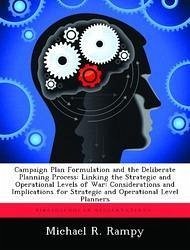
Engaged Leadership: A Method for Linking the Professional Ethic and Battlefield Behaviors
Versandkostenfrei!
Versandfertig in über 4 Wochen
52,99 €
inkl. MwSt.

PAYBACK Punkte
26 °P sammeln!
First Place Winner of the MacArthur Military Leadership Writing Competition for the CGSC Class 2011-01. The ethical behavior of Soldiers on the battlefield is paramount, especially in counterinsurgency and stability operations where the support of the local populace is vital to the success of the mission. Despite their rarity, a few ethical lapses of Soldiers serving at the lowest tactical echelons can be detrimental to the strategic mission. We continue to see how one incident by an individual Soldier or small group of Soldiers can set back the success of an entire unit, even a coalition. Thi...
First Place Winner of the MacArthur Military Leadership Writing Competition for the CGSC Class 2011-01. The ethical behavior of Soldiers on the battlefield is paramount, especially in counterinsurgency and stability operations where the support of the local populace is vital to the success of the mission. Despite their rarity, a few ethical lapses of Soldiers serving at the lowest tactical echelons can be detrimental to the strategic mission. We continue to see how one incident by an individual Soldier or small group of Soldiers can set back the success of an entire unit, even a coalition. This came to the forefront during the war in Iraq with the events of Abu Ghraib and Haditha. Recently, similar events were reported in Afghanistan with five members of an Army Stryker brigade charged with the premeditated murder of three Afghan civilians. These events resurrected memories of Vietnam where Soldier misconduct was considered more prevalent, marked not only by major events such as the My Lai Massacre, but by frequent drug use, fragging of unit leaders, and poor treatment of non-combatants. These events in Iraq suddenly revived a debate over the professional ethic of our Soldiers calling into question whether these events represented isolated incidents or an ethical culture problem in our present armed forces. A culture problem might indicate a failure of initiatives introduced after Vietnam to help counter the problems of the "Hollow Army" including the extension of professional status to non-commissioned officers and the institution of the Army Values. On the surface, these events appear to represent a few isolated incidents. However, the present conditions that exist within our Army including repetitive combat deployments provide opportunities for future lapses to occur. Preventing ethical lapses in the face of these conditions requires a change in unit culture in which fellow members (Soldiers) hold each other accountable to proper standards of conduct and perform














